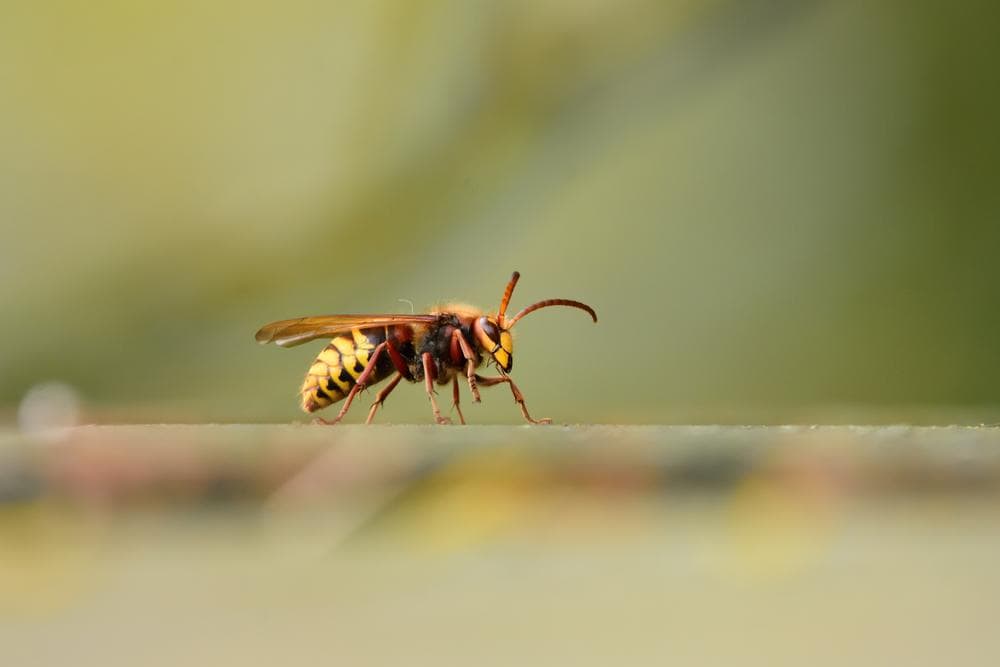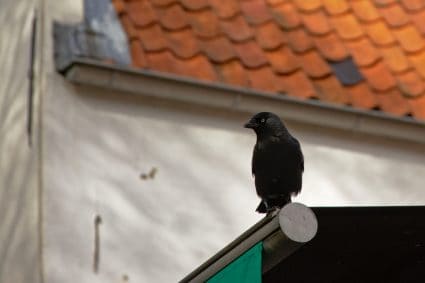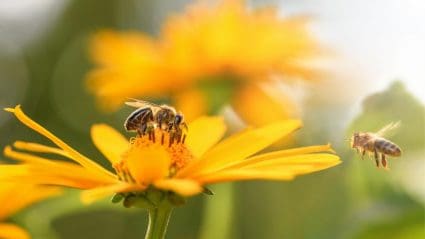
Ground hornets, also known as cicada killers, are among the largest species of digger wasps in the U.S. While they play a crucial role in pollination and pest control, their presence can be a nuisance and potentially dangerous, especially for those allergic to their venom.
This comprehensive guide will walk you through various methods to keep ground hornets away, from maintaining a moist yard to using natural repellents.
To keep ground hornets away, maintain a well-watered and clean yard, plant shade-providing vegetation and wasp-repellent plants like spearmint and thyme, and use natural repellents like essential oils. Seal up any cracks and gaps in your property to prevent nesting. If a nest is found, handle it safely or hire professional pest control services.
What are Ground Hornets and Why are They a Concern?
Ground hornets are prevalent in the New England area but can also appear in southern states. They nest in various locations such as flower beds, backyards, and along sidewalks, creating nesting sites up to 1.5 feet below the ground’s surface.
The concern with ground hornets arises from their stinging capabilities, their propensity to damage turf and tear up roots, and the risk they pose to humans if their nests are built in highly populated areas.
Signs of Ground Hornet Infestation
Identifying a ground hornet infestation early can help manage the situation effectively. Look for sizable holes in your lawn or patio, large piles of dirt in the shape of a horseshoe near the entrance to a burrow, increased hornet or wasp activity, and ground activity indicating a potential nesting site.
Factors That Attract Ground Hornets
Several factors can make your yard attractive to ground hornets. These include standing water or areas with high moisture levels, food sources such as insects, grubs, and larvae in garden soil, suitable nesting sites, fragrant and brightly colored flowers, outdoor structures like sheds, wood piles, or tree stumps, and plants that produce extrafloral nectaries.
Prevention Methods to Keep Ground Hornets Away
Prevention is key when dealing with ground hornets. Here are some effective methods:
- Keep your yard properly watered: Ground hornets prefer to nest in loose soil, so maintaining a well-watered yard can deter them.
- Plant shade-providing vegetation and use mulch: These insects prefer sunny spots for building their nests. Planting vegetation for shade and laying mulch can keep them at bay.
- Seal up cracks and gaps: Prevent nesting in crevices around your home or foundation and hollows on the ground.
- Add wasp-repellent plants: Plants like spearmint, thyme, eucalyptus, wormwood, basil, bay leaves, lemongrass, and citronella grass can deter wasps.
- Use essential oils: A combination of clove, geranium, and lemongrass essential oil can repel wasps.
- Maintain a clean yard: Keep garbage cans tightly sealed and remove any exposed food sources.
Safe Removal of a Ground Hornet Nest
If you find a ground hornet nest on your property, it’s essential to handle it safely. Wear protective clothing, set up lighting some distance from the nest, and treat the nest at night when hornets are less active. Using a solution of soap and water, insecticide dust, or lemon ammonia can help eliminate the nest effectively.
However, if you’re allergic or lack the appropriate equipment, call a professional pest control service for safe removal.
Professional Help for Ground Hornet Infestation
Companies like Orkin, Chorbie Home Services, Facility Pest Control, Done Right Pest Solutions, Ledford’s Pest Control, and Pinnacle Pest Control specialize in pest control and ground hornet situations. They can provide safe and effective solutions for ground hornet infestations.
Safety Measures When Dealing with Ground Hornets
Take precautions when dealing with ground hornets to avoid getting stung. Always locate the nest before taking action, wear protective clothing, avoid perfumed products, stay calm, and seek shelter if attacked. Use appropriate insecticides if necessary and consider professional help if the situation seems out of control.
Preventing Ground Hornets from Building Nests
Preventing ground hornets from building nests on your property involves a combination of keeping the soil moist, sealing up cracks and crevices, using natural repellents, planting wasp-repellent plants, maintaining your yard, using traps, and seeking professional help when necessary.
In conclusion, while ground hornets can be beneficial for pollination and pest control, they can also pose potential threats. This guide provides various methods for keeping ground hornets away and ensuring a safe and comfortable outdoor environment.
Frequently Asked Questions
How big can ground hornets get?
Ground hornets can grow to be quite large, reaching lengths of up to 1.5 inches.
Is the sting from a ground hornet dangerous?
While a sting from a ground hornet can be extremely painful, it is usually not dangerous unless you are allergic to their venom. In case of an allergic reaction, seek medical attention immediately.
What time of the year are ground hornets most active?
Ground hornets are most active during the warm summer months, particularly from July to September.
Can ground hornets fly?
Yes, ground hornets can fly. They are known for their loud, buzzing flight and can be seen flying close to the ground in search of prey or a nesting site.
How many times can a ground hornet sting?
Unlike bees, ground hornets can sting multiple times because their stingers are not barbed and do not get stuck in the skin.
Can ground hornets damage property?
Yes, ground hornets can cause property damage. They dig nests in the ground, which can damage lawns and landscaping. They can also burrow into wood structures, causing further damage.










